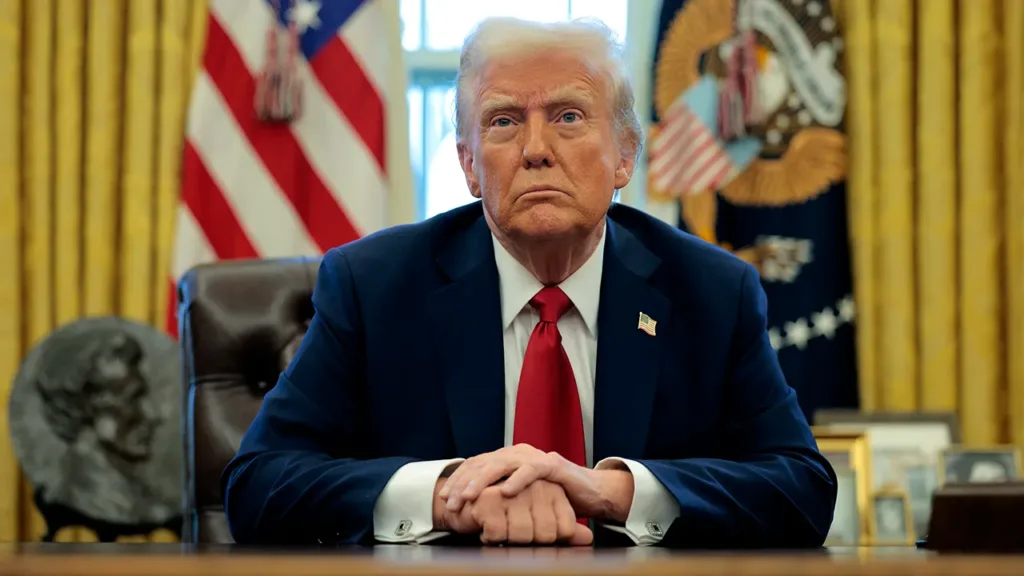President Donald Trump’s proposal to impose a 100% tariff on films produced abroad is raising significant legal and logistical questions, with trade experts and legal scholars pointing to substantial challenges in implementing such a policy.
The plan, which Trump floated in a post on Truth Social before softening his rhetoric less than a day later, has yet to be detailed in full. The administration has since indicated that no final decisions have been made and that industry consultations are planned.
Trump cited the International Emergency Economic Powers Act (IEEPA) of 1977 as a potential legal basis for the tariffs. This law grants the president broad authority to regulate commerce in response to a declared national emergency. However, experts argue that this authority is constrained by the Berman Amendment, a 1988 provision explicitly designed to protect the free flow of informational materials—including films—across international borders.
“The 1994 amendment made crystal clear that the president did not have the power under [IEEPA] to stop the flow of foreign audiovisual media,” said Anupam Chander, a Georgetown University law professor. Chander was among several legal voices to point out that courts have previously sided against efforts to restrict international media under IEEPA, including a 2020 case involving TikTok.
While Trump has suggested foreign-made films pose risks related to “messaging and propaganda,” national security justifications appear to be a weak foundation for such tariffs. “It’s pretty far out there to suggest this is a security risk,” said Steven Bank, a law professor at UCLA. “It’d be hard to imagine it standing up in court on a national security basis.”
The administration has not clarified what constitutes a “foreign” production or how enforcement would function. Unlike physical goods that enter through ports and are easily taxed, most films today are distributed digitally, complicating efforts to apply traditional trade mechanisms. Experts note that tariffs have typically not been used in this sector, making the proposal legally and logistically unconventional.
Other legal avenues exist, but none are straightforward. Emily Kilcrease, a senior fellow at the Center for a New American Security, suggested that Section 301 of the Trade Act, which addresses unfair trade practices, could offer a more viable path. Section 232, which permits trade action on national security grounds, is another possibility. However, both would require lengthy investigations and would face scrutiny over the justification for targeting foreign film production.
“This is not a place where we’ve imposed tariffs in the past, so there’s not a clear road map,” said Marney Cheek, an international trade attorney at Covington & Burling.
The Berman Amendment’s intent and language remain a central obstacle. Authored by Rep. Howard Berman of Los Angeles, the amendment was introduced in response to government seizures of books and magazines from embargoed nations. Its goal was to preserve the exchange of ideas across borders, regardless of geopolitical conflicts.
“The fact that we disapprove of the government of a particular country ought not to inhibit our dialogue with the people who suffer under those governments,” Berman said at the time. The amendment has since been expanded to explicitly include all media formats, both analog and digital.
Although the amendment has not been directly tested against tariffs—having been invoked primarily in the context of sanctions and embargoes—its implications for Trump’s plan are substantial. Any attempt to proceed under IEEPA could face swift legal challenges from studios or industry groups.
So far, the Motion Picture Association and major studios have remained publicly silent on the issue. Labor unions have been more vocal: the Teamsters, which endorsed Trump during the campaign, have expressed support for measures to combat runaway production. IATSE, the entertainment industry’s largest union, has called for federal production incentives and cautioned that any trade measures should avoid harming domestic industry interests.
Trump told reporters on Monday that he intends to meet with entertainment industry leaders to discuss strategies for repatriating film production. “I’m not looking to hurt the industry; I want to help the industry,” he said, though he did not specify who would participate or when those meetings would occur.
“How on earth are they going to enforce this?” asked Schuyler Moore, a partner at Greenberg Glusker. He pointed to the intangible nature of film distribution, calling the proposal difficult to apply through standard trade enforcement tools.
